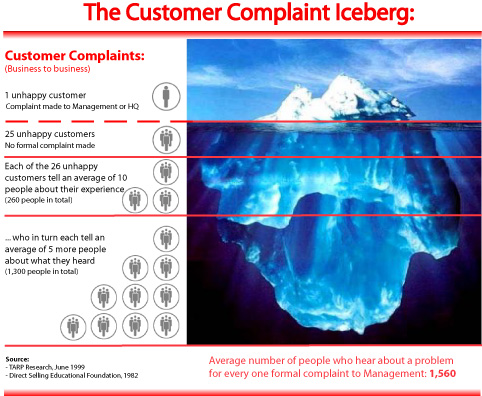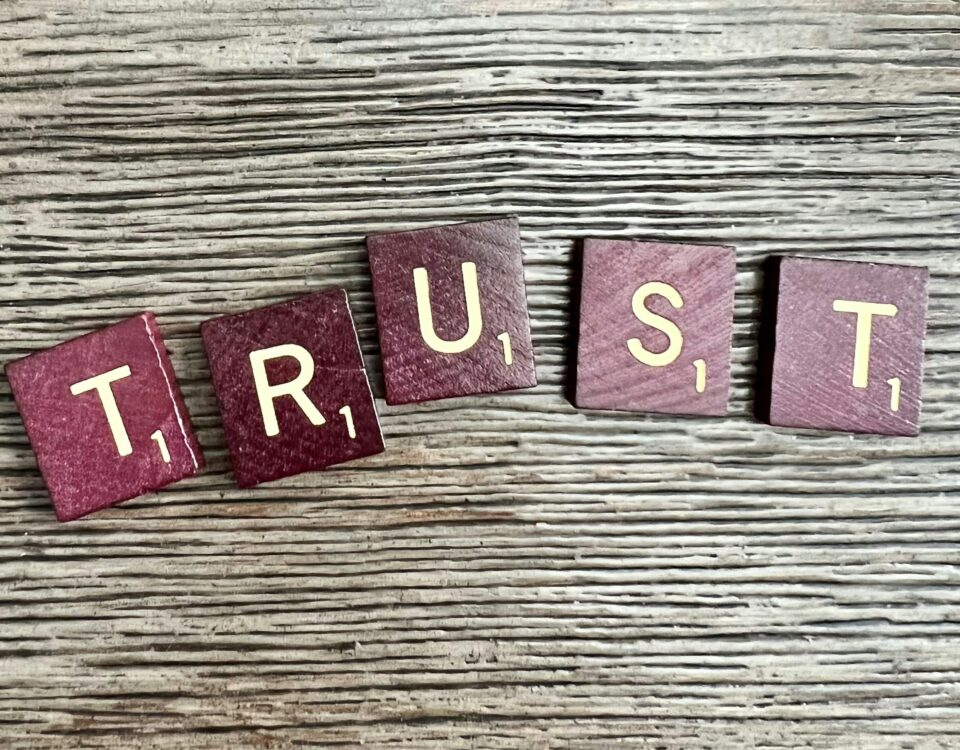Is Social Media and the Internet Making Bennis' Predictions Come True?
May 22, 2010Drive Customer Retention By Building Empathy With Your Customers
May 25, 2010I often hear stories of companies that get great customer satisfaction scores and few customer complaints but they are still losing customers. Are you one of those?
When I hear of this happening, it reminds me of a piece of research that was done by US firm TARP back in 1999. Their research showed that for every 26 unhappy customers, only one will make the effort to make a formal complaint. The rest of them will either stay where they are and not be happy or, more importantly, will leave to do business with someone else. According to TARP:
“Customers very rarely complain to the service/ product provider. Instead they will tell their friends, who will in turn tell their friends, creating a pyramid of dissatisfaction.”
The real concern, however, comes from their finding every customer who is unhappy, including those that have not taken the time to complain, will tell 10 people and they will, in turn, tell another 5 people each. In total, that means that for every complaint that you receive there is a possibility that an average of 1,300 people will hear about at least one of those unhappy customers’ experiences.
This is commonly known as the Customer Complaint Iceberg and, like the iceberg in nature, it implies there is always much more going on under the surface than is visible.
Scared? Concerned? You should be. In a world where technology allows negative opinions to spread like wild-fire and where any sustainable and successful business knows that generating positive word of mouth and building strong brand awareness is crucial to their success.
So, before you sit back and revel in your high customer satisfaction scores and dismiss today’s complaint as unimportant in the grander scheme of things, ask yourself these questions:
- Are you getting a high response rate from any customer survey or feedback process that you have in place?
- If not, for all of those that are not replying, how many could be ‘silent’ complainers?
- Could this be the reason that you are not getting very many complaints but are still losing customers?
Let’s be clear here. It takes a brave business to ask their customers to give them their honest opinion and sometimes, the feedback may be critical. This is where your listening skills are paramount. It is only those organisations that understand what makes their customers happy and unhappy that are able to come up with ways to improve (and implement them) in the future.
If this feels like it could be your business, here’s a few things you could do to address the situation:
- Get out and talk to your customers.
- Listen to their concerns.
- Don’t assume that a customer satisfaction survey is a substitute for this.
The key to the success of any business is held by its customers. Only by spending time with them and understanding them better will you be able to define and unleash your business’s future potential.
Measuring customer satisfaction and dealing with complaints is only part of the process. Digging deeper to find those unsaid complaints is just as important. However, it’s what you do with those insights that makes the real difference. By turning those insights into action, your business will benefit from:
- Improved customer retention;
- Increased sales;
- Increased understanding of your customers; and
- More referrals generated from your current customers.
What do you think? Do you have a customer complaints iceberg in your business?
Let me know your thoughts.





13 Comments
Are You Not Getting Many Customer Complaints But Are Still Losing Customers? @ http://bit.ly/ab4Qle Will You Retweet This, Please?
RT @adrianswinscoe: Are You Not Getting Many Customer Complaints But Are Still Losing Customers? @ http://bit.ly/ab4Qle
RT @adrianswinscoe: Are You Not Getting Many Customer Complaints But Are Still Losing Customers? @ http://bit.ly/ab4Qle
Are You Not Getting Many Customer Complaints But Are Still Losing Customers? http://bit.ly/9WG2dM